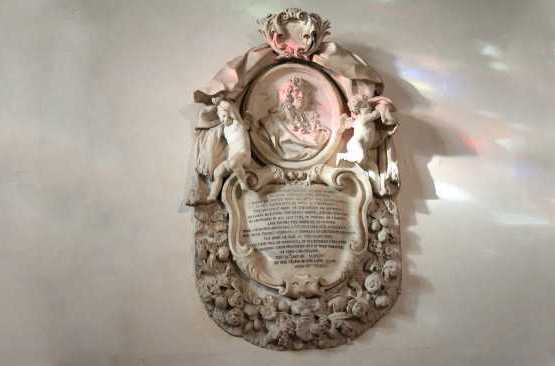8 June 2022

The Rustat Memorial
A judge has rejected a rare application for costs in an ecclesiastical court, where costs do not follow the event, holding that the conduct of the losing party did not justify an order.
In the substantive case, the Worshipful David Hodge QC, Deputy Chancellor of the Consistory Court of the Diocese of Ely, rejected an application by Jesus College, Cambridge to remove the 17th century memorial to Tobias Rustat from the west wall of the grade I listed college chapel.
He found the “widespread opposition” to the continued presence of the memorial within the chapel was the product of “the false narrative that Rustat had amassed much of his wealth from the slave trade, and that it was moneys from this source that he used to benefit the college”.
Ecclesiastical court rules are that parties generally bear their own legal costs unless they have behaved unreasonably in the conduct of the proceedings and caused additional costs to another party as a result.
In his costs ruling, following submissions on paper, Judge Hodge acknowledged that both the court and the public owed “a great debt of thanks” to those who opposed the application – called the ‘parties opponent’ – and to their counsel for drawing attention to the matter.
“If the touchstone for the award of costs were the extent, and the significance, of the disinterested contribution that a party has made to the outcome of a case, then I would have had no hesitation in making an award of costs in favour of the parties opponent. However, that is not the criterion: because it is important that all the issues for, and against, the grant of a faculty are fully examined, it is right, and in the public interest, that parties should not, as a general rule, be penalised simply because they are unsuccessful.”
Here, 65 parties opponent sought costs of £42,300, with one individual seeking a further £1,646.
The court’s decision has proved to be controversial, with the college “vociferously” expressing its disagreement in the media. But Judge Hodge said this “comes with the territory” and could not “properly be regarded as unreasonable conduct so as to attract an adverse costs order in consistory court proceedings”.
He explained: “Were it capable of doing so, it would mean that a party who had acted reasonably up to the point of judgment would be at risk of a finding of unreasonableness on the basis of their conduct thereafter. In any event, such post-judgment behaviour cannot have resulted in additional costs being incurred by another party.
“Although the court cannot anticipate all possible future eventualities, as at present advised, I consider that post-judgment behaviour could only be of possible relevance to an application for costs against an unsuccessful party to faculty proceedings where it tends to show that that party’s conduct of the actual faculty proceedings has been motivated by some improper, or collateral, purpose or motive.”
He ruled that there was no unreasonable conduct on the part of the college and so refused the applications for costs.
This was “with some regret” given the “invaluable assistance” the parties opponent had provided the court, but was “tempered” by the fact that they must have appreciated that they would not be able to recover their costs absent proving unreasonable conduct.
Judge Hodge found that the college acted “entirely properly” in bringing this matter before the court. “This was a paradigm example of a significant item of contested heritage, associated with the trade in enslaved people, which, in the absence of any precedent to assist the college in its approach, inevitably, and properly, became the subject of consistory court proceedings.
“Secondly, I am satisfied that the college did not act at all unreasonably in the way in which it approached, and conducted, this inevitable litigation.”
While the college may have made “some mistakes” in the way it approached the litigation, “this is not infrequently the case when one applies the wisdom of hindsight to high-profile, and highly sensitive, cases such as the present; and, if anything, any mistakes have tended to work to the benefit of the case advanced by the parties opponent rather than causing them to incur costs”.
Among the judge’s other reasons were that the parties opponent failed to demonstrate a causal link between their costs and any particular instance of alleged unreasonable conduct.
The college, however, accepted that it should pay all the court fees incurred in its petition.
Mark Hill QC (instructed by Stuart Jones of Birketts) represented the petitioner, Jesus College, Cambridge. Justin Gau (instructed directly) represented 65 of the parties opponent. Professor Lawrence Goldman, another party opponent, appeared in person. Another two parties opponent were neither present at the hearing nor represented.
